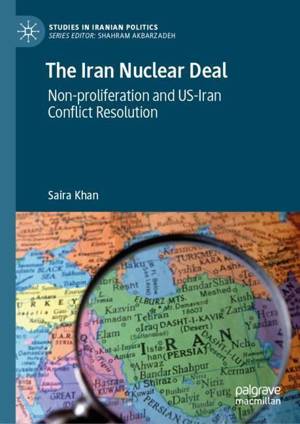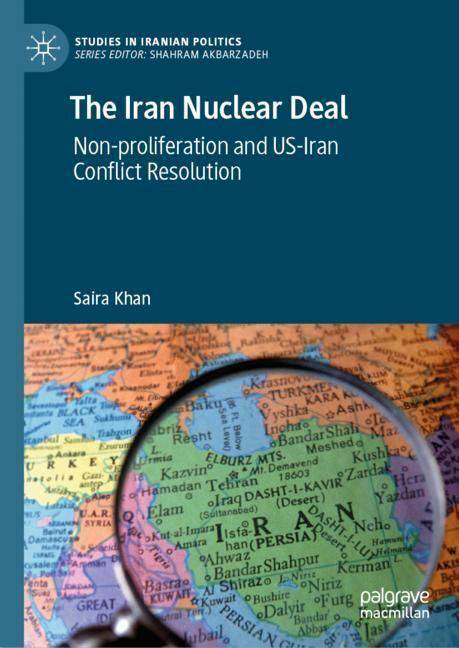
- Retrait gratuit dans votre magasin Club
- 7.000.000 titres dans notre catalogue
- Payer en toute sécurité
- Toujours un magasin près de chez vous
- Retrait gratuit dans votre magasin Club
- 7.000.0000 titres dans notre catalogue
- Payer en toute sécurité
- Toujours un magasin près de chez vous
Description
This book delves deep into the complex dynamics surrounding the Iran nuclear deal and its subsequent fracture. In a post-2018 world, following the United States' withdrawal from the 2015 Iran nuclear agreement, this work dissects the ramifications of this geopolitical shift, particularly with respect to Iran's nuclear ambitions.
The book's central premise revolves around the idea that Iran's pursuit of nuclear capabilities is intricately tied to its enduring conflicts with Iraq, Israel, and the United States. It argues that the nuclear deal had the potential to quell these conflicts, particularly the long-standing rivalry between Iran and the U.S., thus reshaping Iran's relationships in the Middle East. However, with the U.S. exit from the agreement and its accusations of Iranian sponsorship of terrorism, Iran now perceives a heightened threat, potentially leading it to consider nuclear weapons as a deterrent against a potential war with the U.S.
The book challengesconventional international relations paradigms with regards to Iran: realism, which typically predicts all conflicting states will seek nuclear weapons regardless of cooperative arrangements, is shown to ignore the nuanced connection between cooperation and proliferation propensity; and liberalism's emphasis on cooperation is critiqued in this case for overlooking the negative consequences of failed cooperative endeavours. The book highlights the importance of trust and compliance in the success of cooperative agreements, as well as the adverse effects of their breakdown.
The work contributes significantly to our understanding of international relations in the Middle East. It draws on an extensive examination of prior research while presenting novel theoretical insights. The detailed case study of Iran's nuclear aspirations before, during, and after the nuclear deal serves as a compelling application of the theoretical framework.
Finally, the book provides an in-depth exploration of the intricate web of geopolitics, trust, and cooperation that has shaped the trajectory of Iran's nuclear ambitions. It offers not only theoretical contributions to the field of international relations but also valuable policy insights for managing this critical international issue.
Spécifications
Parties prenantes
- Auteur(s) :
- Editeur:
Contenu
- Nombre de pages :
- 289
- Langue:
- Anglais
- Collection :
Caractéristiques
- EAN:
- 9783031501951
- Date de parution :
- 20-01-24
- Format:
- Livre relié
- Format numérique:
- Genaaid
- Dimensions :
- 148 mm x 210 mm
- Poids :
- 517 g

Les avis
Nous publions uniquement les avis qui respectent les conditions requises. Consultez nos conditions pour les avis.






